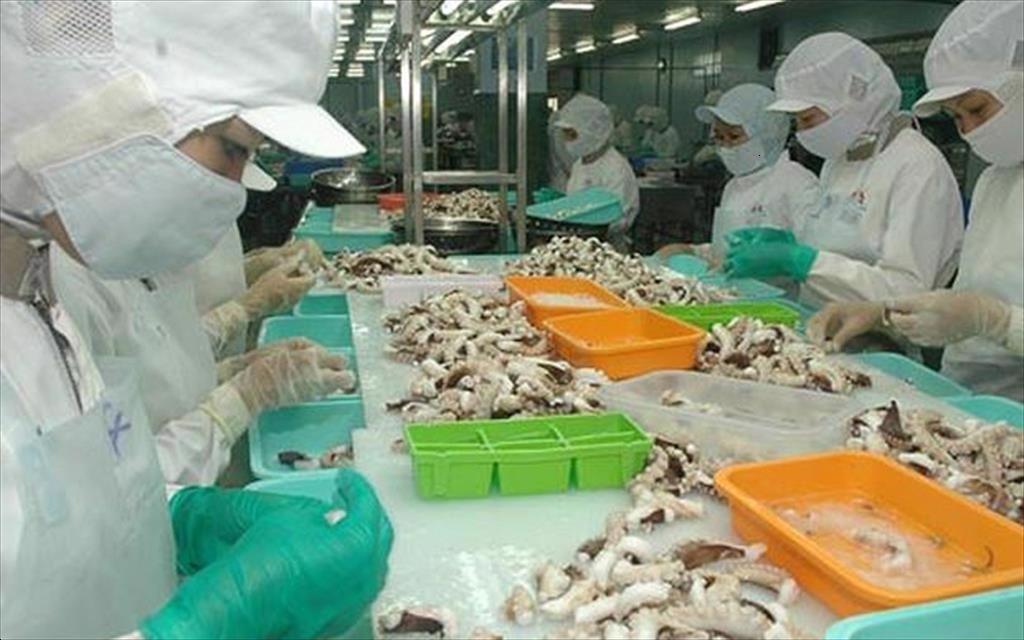Squid and octopus exports a bright spot from Japanese market
VOV.VN - Despite the first five months of the year seeing the export of squid and octopus drop by 13% on-year, exports to the Japanese market hit US$64 million, marking an annual rise of 4%, according to the Vietnam Association of Seafood Exporters and Producers (VASEP).
Vietnamese exports of squid and octopus during the reviewed period reached more than US$240 million, a decline of 13% over last year’s corresponding period.
May alone witnessed the export of the product reach US$52 million, a drop of 18% on-year.
Despite negative growth being inevitable amid a general decline of Vietnamese seafood exports, compared to other major seafood products, the export value of squid and octopus recorded only a slight fall.
As of May this year, Vietnamese squid and octopus products have been shipped to 65 markets globally.
The top 10 largest import markets of Vietnamese squid and octopus include the Republic of Korea, Japan, Thailand, China, Hong Kong (China), Italy, the United States, Malaysia, Taiwan (China), Spain, and France.
Exports of squid and octopus to major consuming markets all endured a double digit fall, with the exception of Japan.
Accordingly, the Republic of Korea (RoK) represents the largest import market of Vietnamese squid and octopus, accounting for 35%. In line with this, five-month squid and octopus exports to the RoK hit US$84 million, down 13% on-year.
Japan represents the country’s second largest single octopus and squid import market, accounting for 27% of the total figure.
Compared to the Korean market, Vietnamese squid and octopus exports to the Japanese market recorded positive signs, with squid and octopus exports to the highly-lucrative market throughout the reviewed period reaching US$ 64 million, up 4% over the same period from 2022.
Japan's domestic production of squid and octopus have been decreasing, while the Far East Asian nation's demand for instant and convenient products of squid and octopus has increased due to the modern and busy lifestyles of citizens.
This is factor has positively impacted Vietnamese exports of squid and octopus to Japan.
Along with the Far East country, exports of squid and octopus to smaller markets such as Malaysia, Australia, Taiwan (China), and the Philippines have more positive signals, recording a positive double-digit growth of 15% to 75%.
Generally, the decline in export turnover can be attributed to the impact of inflation and the global economic recession, thereby reducing consumption demand from international markets.
Furthermore, the illegal, unreported and unregulated (IUU) "yellow card" on Vietnamese seafood products has yet to be removed, while exporters of squid and octopus continue to face disadvantages in terms of raw material costs and unfavourable weather for fishing activities.
This reduces the overall competitiveness of businesses as many exporters of these products have had their orders reduced and have been forced to operate in moderation or close some factories.
It is therefore expected that in the third quarter of the year, export activities will be better compared to the previous two quarters.
But the source of raw materials will be difficult because the fishing output in the world's seas is decreasing, along with the ban placed on fishing in the seas starting to take effect, with the next rainy season expected to reduce supply. These factors all represent challenges for enterprises exporting this product.

